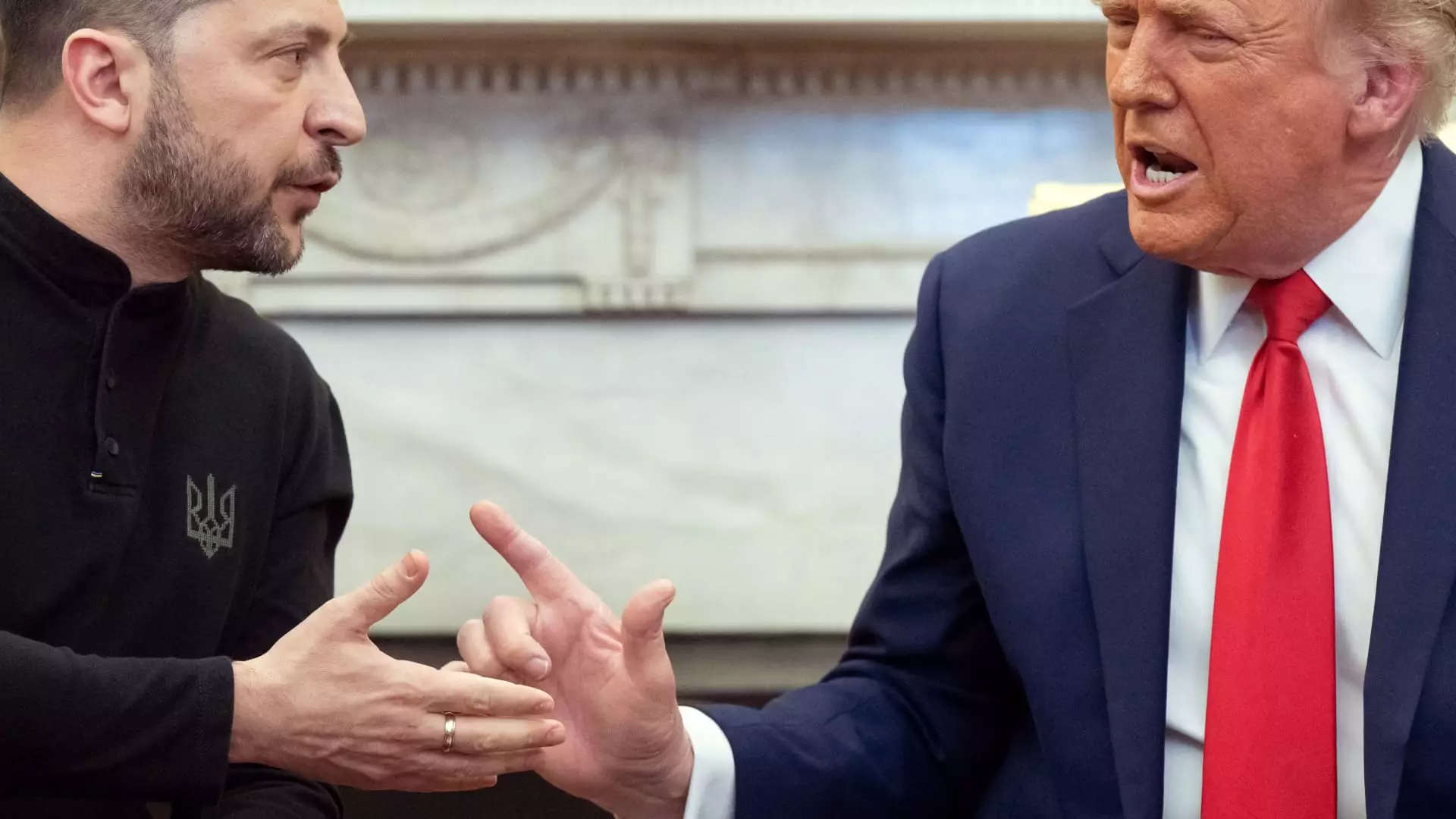Recent discussions between U.S. lawmakers and Ukrainian President Volodymyr Zelenskyy reveal not only the intricacies of international diplomacy but also the pressures borne by political leaders on both sides. Speaker of the House Mike Johnson’s comments underscore a pivotal moment in the ongoing dialogue concerning Ukraine’s quest for security and peace amid its fraught relationship with Russia. As negotiations unfold, observing the interplay of gratitude, leverage, and political maneuvers becomes essential to understanding the broader implications for U.S.-Ukraine relations.
Two days prior to Johnson’s remarks, an exchange in the Oval Office evidenced a tense moment in the dialogue, as both former President Donald Trump and Vice President JD Vance suggested that Zelenskyy needed to convey appreciation for American support. Johnson’s assertion that Zelenskyy “needs to come to his senses” raises questions about perceived expectations of foreign leaders regarding their acknowledgment of U.S. support. Implicit in Johnson’s statement is the notion that gratitude is a prerequisite for any productive negotiations—a perspective that not only complicates diplomatic relations but also sets a concerning precedent for future international dialogues.
One of the critical aspects of the negotiations discussed involves Ukraine’s interest in securing a deal related to rare earth minerals in exchange for military support and economic partnership. Zelenskyy’s insistence on implicit security guarantees illustrates a strategic approach to balancing Ukraine’s immediate needs against its long-term security interests. When leaders like Zelenskyy push for assurances that the U.S. will support Ukraine should a ceasefire be disrupted, they are injecting complexity into the negotiations designed to operationalize economic partnerships.
Johnson’s assertion that the mineral rights deal is beneficial for both parties raises the question of what it means for defense and economic interdependencies. By promoting a narrative that positions U.S. involvement as not just benevolence but as a crucial factor in maintaining stability, he implicitly asks for Ukraine’s alignment with U.S. strategic interests in the region. However, the challenge lies in whether such a partnership can be sustained without undermining Ukraine’s autonomy and agency in international affairs.
As the conversation about foreign relations unfolds, it is impossible to ignore the parallel discussion regarding the budget reconciliation bill proposed by House Republicans. With an emphasis on cutting $2 trillion in public spending, concerns abound regarding the implications for essential services like Medicaid. Johnson’s reassurance that healthcare programs will remain untouchable is vital to maintaining public trust, especially among vulnerable populations that could be adversely affected by budget cuts.
However, the Speaker’s confidence in maintaining these benefits amidst significant cuts raises skepticism. It suggests a potential disconnect between political aspirations and fiscal realities. By insisting that fiscal responsibility and the preservation of essential benefits can coexist, Johnson is attempting to placate conflicting interests within the Republican Party while addressing public concerns. This balancing act is complicated further by the urgent need to extend tax cuts, which adds another layer of complexity to the ongoing discussions.
The broader implications of this ongoing dialogue extend far beyond the confines of American politics. The perceptions held by countries like Russia, China, and Iran regarding the U.S. stance on Ukraine and its commitment to securing economic partnerships will undoubtedly shape their future interactions with both the United States and Ukraine. Johnson’s comments serve not only to define the current administration’s position but also to send a message to these nations about America’s resolve and strategic objectives.
Johnson’s remarks about Zelenskyy encapsulate the intricate dynamics of international diplomacy entwined with domestic political pressures. A critical appreciation of this complex web reveals how intertwined economic deals, security guarantees, and political expectations shape the future of U.S.-Ukraine relations. As negotiations progress, leaders on both sides must navigate this delicate balance, striving to maintain not only the integrity of their national interests but also the trust of their respective constituents.


Leave a Reply